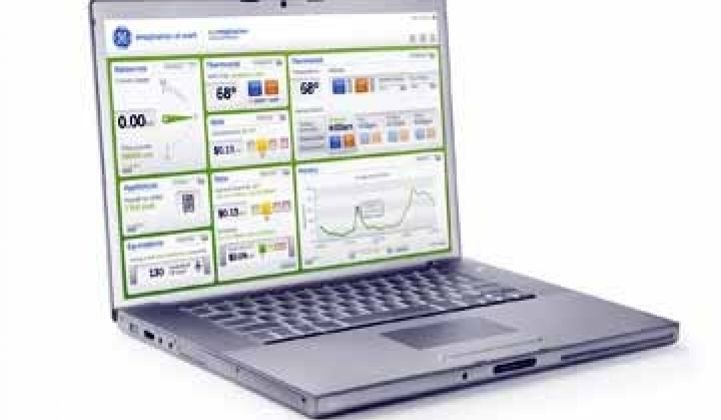When it comes to residential energy efficiency, there's so much more that can be done than just switching off the lights. While a recent study suggests that the average American is completely clueless about what those other actions are, the government is funding pilot projects to show that substantial savings in new and retrofit homes is possible.
General Electric is teaming up with utilities, builders and academic researchers to take home efficiency to the next level by using smart appliances and lights coupled with renewable resources to make homes 30 percent to 70 percent more efficient.
The test houses, part of the Department of Energy's Building America Program, will be a mix of retrofit and new construction. The goal of the DOE program is to cut energy use by 30 percent, but GE and its partners think they can reach 70 percent if rooftop solar panels are added to the mix.
The homes will also be equipped with GE's NucleusTM Home Energy Manager, a Wi-Fi and ZigBee enabled home energy communications device that plugs into the wall, takes energy readings from smart devices and displays them on a web portal (and the requisite iPhone app).
GE will track the cost of the upgrades and/or installations for each house, along with the energy data and also the related utility cost savings. The estimate is that the savings could be more than $800 for the average U.S. home, but that is after the return on investment.
The Building America team, led by ConSol, an energy consultancy headquartered in Stockton, California, also includes: Washington State University, Arizona State University, University of California at Davis, Ennovationz, Sacramento Municipalities Utilities District, San Diego Gas & Electric, Arizona Public Service, Pulte Homes, Salt River Project and Bank of America. BIRA was one of 15 teams selected to receive funding from the DOE through its Building Technologies Program.
The project received $5 million from the DOE to test these technologies, but the money could also just as well be spent finding out what it takes for people to adopt the retrofits in the first place.
Currently, only about one-third of the appliances on the market are even Energy Star certified, and far fewer are smart appliances. Before appliances, HVAC systems are the biggest energy hogs in the home, anyway, so installing a smart dishwasher isn't exactly going to lead to a revolution in energy use.
Even if the savings are small, upgrades and retrofits do cut down on kilowatts used. The DOE has identified that retrofitting a home is one of the most effective ways to achieve energy -- and cost -- savings, but that advice seems to fall on deaf ears. Now the DOE just has to figure out how to get the public to listen and care about the results of projects like this one.



